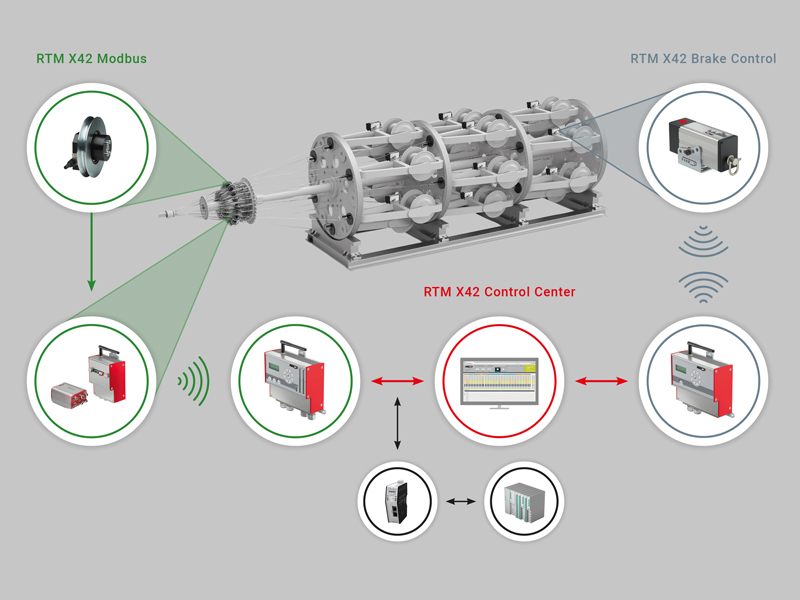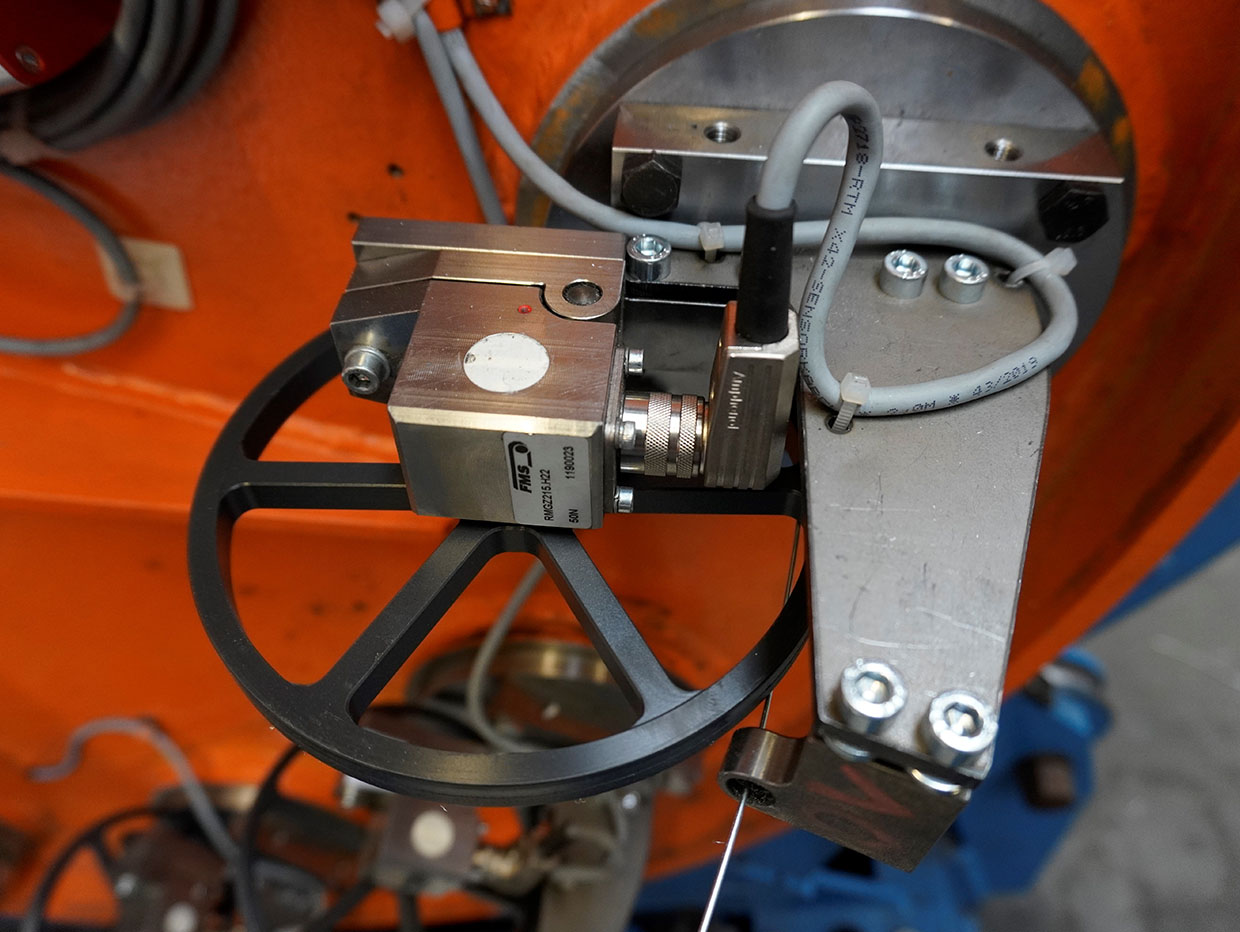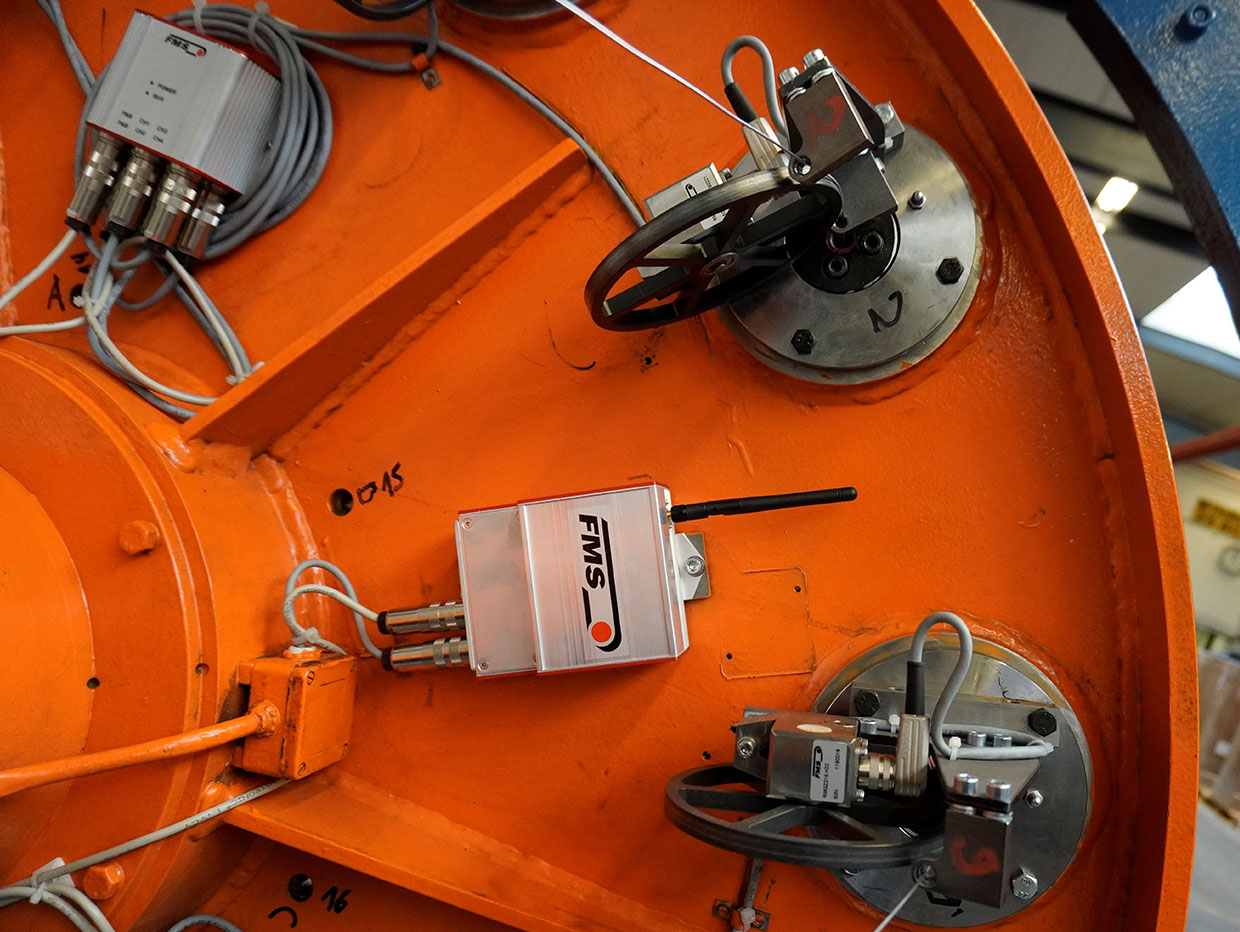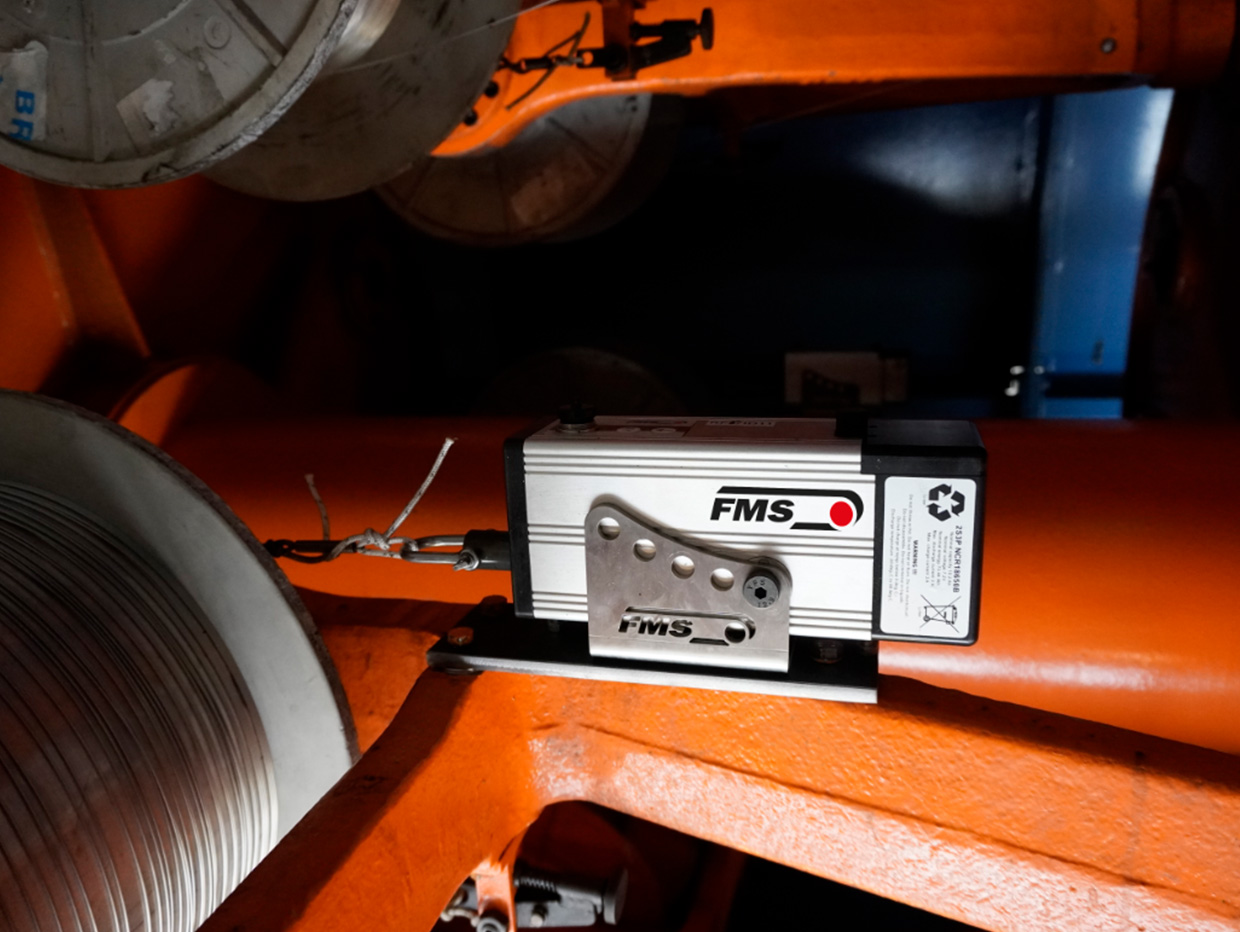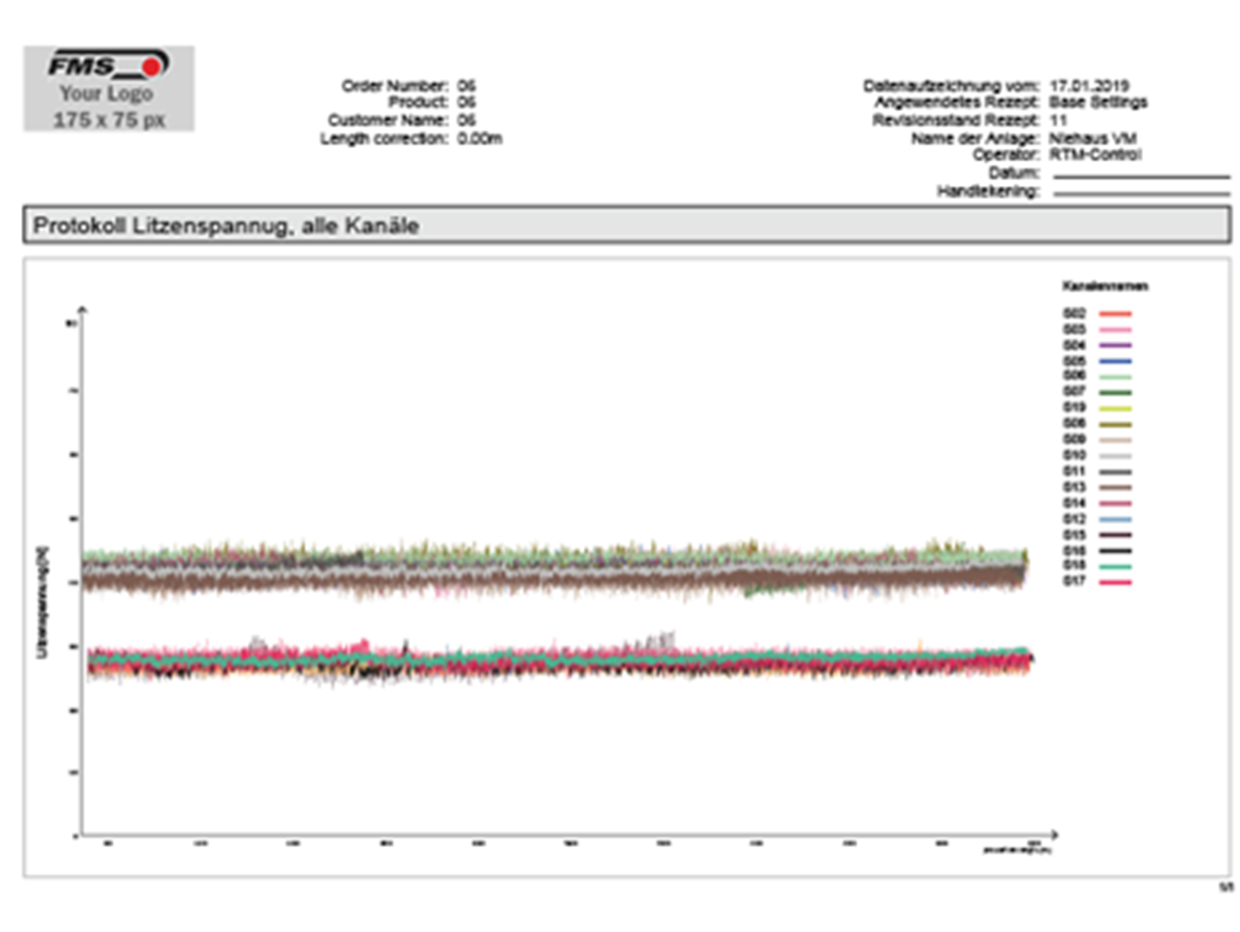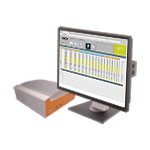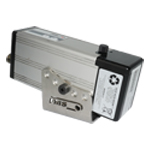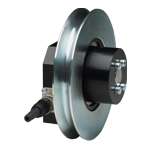When tension really matters
Whether you’re making power lines, fibre-optic cable, steel rope or any other high-value cable or wire, constant monitoring and control of strand tension is vital. That’s where the Swiss-made RTM X42 system comes in.
Meet exact specifications and stringent quality standards. Drive up productivity. Maximise return on investment in machinery. These are some of the biggest challenges facing makers of high-value cable and wire today. That’s why more and more manufacturers are turning to the RTM X42 telemetry system, the world’s only retrofittable tension-monitoring solution for stranding machines.
Made by Swiss engineering firm FMS, the system allows cable and wire producers to continuously and accurately measure and control the tension of each individual strand on tubular and cage stranders and other rotating machinery. This helps in meeting the precise specifications and quality standards that apply to specialist cables and wires such as high-voltage power lines, structural ropes, fibre-optic cable and steel rope for ropeways, cable cars and winches.
Yet most of the stranding machines operating today have no in-built tension-monitoring capability. Instead, machine operators have to check strand tension by sight, touch or with a hand-held instrument. Taking manual measurements interrupts production. Also, it makes measurement errors more likely, which can harm quality and generate unnecessary scrap.
Worse still, if a finished cable or wire contains a fault that only comes to light once in use, companies may face complaints and be forced to compensate the client. And if a safety-critical cable were to fail, this could cause major legal, financial and reputational damage.
Control and confidence
Norbert Schilling, product manager at FMS, says: “By providing a dedicated, closed-loop tension-monitoring capability, the RTM X42 gives you constant control over this critical aspect of your production process and gives you confidence in the quality of your end product. At the same time, it increases throughput and reduces waste.”
In addition, because the RTM X42 can be retrofitted to any type of strander, even those in service for 30 years or more, it can breathe new life into old machinery. Schilling explains: “It allows companies to meet the demands of today’s market while extending the viable operating life of a strander that was once a major capital investment.” It’s easy to identify scenarios where the RTM X42 can make a difference.
- A high-voltage power line is many kilometres in length and may have a cross section of 50cm2 (7.75 in2). Production requires a great deal of raw material, usually aluminium or copper. If there are problems keeping constant tension and some of the run has to be scrapped, this can be extremely costly.
- In producing fibre-optic cable for telecommunications applications, manufacturers must meet precise tension specifications so that the cable is sufficiently flexible and durable. They also need to record tension data to demonstrate compliance.
- When making the steel rope that supports cable cars, every strand must be kept at the correct tension. Faults in the finished rope could bring a cable car operation to a standstill or even result in injury or loss of life.
Easy installation and use
Not only does the RTM X42 drive productivity and quality, it’s also easy to install. It can be fitted to all tubular and cage stranders as well as bow, planetary or armouring machines. No modifications to the machine are necessary and, because data is transferred via radio transmission, there is no need for external wiring.
Once in use, the system needs minimal maintenance. There are no moving parts that can wear, and the batteries can be recharged several hundred times before they need to be replaced. All devices are well protected from oil and other contaminants.
A specialist in force and tension measurement, Zürich-based FMS has a long history in the cable and wire industry. The company developed the first solution for measuring tension in rotating stranding lines 15 years ago. In 2017, it debuted the RTM X42. The system is now in wide use across Europe, Asia and the Americas.
FMS is also a world leader in devices for web tension measurement and web guiding used in the converting industries in making materials such as foil, paper and textiles.
Inside look: How the RTM X42 system works
- There are three modules in the RTM X42 system. The core module measures tension at the rotating part of the stranding machine and transmits the resulting data. An optional RTM X42 Control Centre module displays and records the data. The RTM X42 Brake Control module, again optional, controls each pay-off brake on the machine.
- Force measuring rollers installed close to the stranding point of the machine measure the tension of up to 42 individual wires or strands.
- The signals are amplified and digitized by the integrated electronics.
- The transmitter reliably broadcasts the measured values over a 2.4 GHz radio link to a receiver located in the periphery of the machine or on the control panel.
- Tension values are received in the RTM X42 Control Centre for real-time monitoring and analysis. Data is recorded to provide an audit trail.
- Alternatively, where the Control Centre module is not required, data can be sent direct to your existing machine control panel.
- The RTM X42 Brake Control module controls each individual pay-off brake on all cradles in the machine to enable precise, automatic control of tension in every strand.

